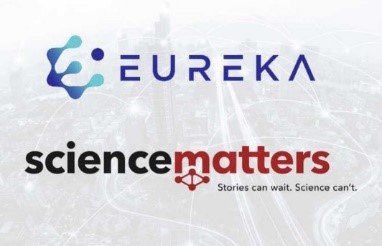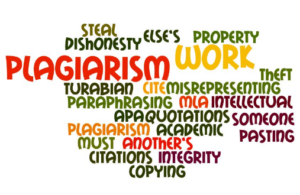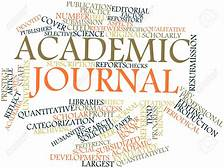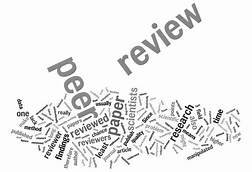Publishing in the News
As the changes in access to information have increased so too has the attention to those who are the purveyors of that information … with a significant focus on publishers. In this Gatherings column, I’ve collected some reports by the world’s news organizations regarding what is happening in our industry. Given the interest of the CSE membership and readers of Science Editor, most entries depict coverage of STEAM (Science, Technology, Engineering, Arts, and Mathematics) as well as STM and scholarly publications.
As data becomes a larger component of both authors’ and researchers’ expectations, how research data factors into maintaining high-quality publishing likewise becomes a larger challenge. An example is this Science Business article posted February 7, 2019.
Final text of the update to the Public Sector Information Directive shows MEPs failed in moves to require publication of all publicly funded research. Rather than open by default, data will be “as open as possible, as closed as necessary”
EU’s new rules place restrictions on open publication of research data
https://sciencebusiness.net/news/eus-new-rules-place-restrictions-open-publication-research-data
 An article in the February 7, 2019 issue of Bitcoin Exchange Guide demonstrates how technology from other industries are beginning to influence the dissemination of scientific information.
An article in the February 7, 2019 issue of Bitcoin Exchange Guide demonstrates how technology from other industries are beginning to influence the dissemination of scientific information.
ScienceMatters scientific research platform builds blockchain peer review process, will use Eureka Tokens
https://bitcoinexchangeguide.com/sciencematters-scientific-research-platform-builds-blockchain-peer-review-process-will-use-eureka-tokens/
As the impact of political decisions increases in so many areas the Negotiation Journal has devoted a special issue to this very current topic.
Special issue explores implications of Trump presidency for negotiation and conflict resolution (press release posted on YubaNet February 5, 2019)
https://yubanet.com/usa/special-issue-explores-implications-of-trump-presidency-for-negotiation-and-conflict-resolution/
 Not all publishing news centers around journals, this article posted February 6, 2019 by a European telegraph agency, Belarus News, highlights the importance of book publishing to Belarusians.
Not all publishing news centers around journals, this article posted February 6, 2019 by a European telegraph agency, Belarus News, highlights the importance of book publishing to Belarusians.
Book publishing described as Belarus’ trademark
https://eng.belta.by/president/view/book-publishing-described-as-belarus-trademark-118458-2019/
Another positive story concerning books and copyright was published in the Washington Post on February 6, 2019.
1923 and Me: A critic picks some favorite books now in the public domain
https://www.washingtonpost.com/entertainment/books/the-copyright-has-expired-on-thousands-of-books-here-are-the-best-ones-to-read/2019/02/05/732b4a00-289f-11e9-8eef-0d74f4bf0295_story.html?utm_term=.f809264c8294
As you well know, not all the press coverage about publishing is positive. Take for example, these articles in two UK publications The Mail & Guardian and The Economist from late 2018.
The business of fake science
https://mg.co.za/article/2018-11-16-00-the-business-of-fake-science
A boom in bogus publications is driven largely by a change to many journals’ business model
What are “predatory” academic journals?
https://www.economist.com/the-economist-explains/2018/07/10/what-are-predatory-academic-journals
Here’s a recent example (February 2019) from The Guardian in the UK (original study published in BMJ Open) describing a disturbing situation regarding medical journals.
Call for retraction of 400 scientific papers amid fears organs came from Chinese prisoners
Study finds failure of English language medical journals to comply with international ethical standards
https://www.theguardian.com/science/2019/feb/06/call-for-retraction-of-400-scientific-papers-amid-fears-organs-came-from-chinese-prisoners?utm_term=RWRpdG9yaWFsX0xhYk5vdGVzLTE5MDIwOA%3D%3D&utm_source=esp&utm_medium=Email&utm_campaign=LabNotes&CMP=labnotes_email
 Another area that has received significant news coverage over the years is that of plagiarism. For a few decades, high-profile personalities, politicians, and government officials worldwide have been charged with plagiarism (often resulting in their resignations). These have been followed by researchers and scholars seeking out plagiarism among their own. An example is this interesting article posted on one of the Discover blogs. It is followed by an article in The New Indian Express (New Delhi) reporting on researchers and plagiarism.
Another area that has received significant news coverage over the years is that of plagiarism. For a few decades, high-profile personalities, politicians, and government officials worldwide have been charged with plagiarism (often resulting in their resignations). These have been followed by researchers and scholars seeking out plagiarism among their own. An example is this interesting article posted on one of the Discover blogs. It is followed by an article in The New Indian Express (New Delhi) reporting on researchers and plagiarism.
Paper about plagiarism contains plagiarism
http://blogs.discovermagazine.com/neuroskeptic/2017/05/17/paper-about-plagiarism-contains-plagiarism/#.XF2zoFxKiUl
Over 7000 researchers from India, Republic of Korea, Japan, China, and Brazil were interviewed for a survey conducted by Editage, a global scholarly communications firm.
25 per cent researchers worldwide have poor understanding of plagiarism: Survey
http://www.newindianexpress.com/nation/2018/nov/29/25-per-cent-researchers-worldwide-have-poor-understanding-of-plagiarism-survey-1905027.html
 Articles about the internal mechanics of how journals are published are also part of the mix covered by the media. Starting with the hard-hitting critique from the National Review, the Times Higher Education, and Nature where articles address some ubiquitous concerns and one from Science provides an excellent history on the beginnings of serious research directed to journal publishing which began in the 1980s. [CSE’s past president, Dr. Drummond Rennie is acknowledged as the first serious researcher in the new field.]
Articles about the internal mechanics of how journals are published are also part of the mix covered by the media. Starting with the hard-hitting critique from the National Review, the Times Higher Education, and Nature where articles address some ubiquitous concerns and one from Science provides an excellent history on the beginnings of serious research directed to journal publishing which began in the 1980s. [CSE’s past president, Dr. Drummond Rennie is acknowledged as the first serious researcher in the new field.]
Those hoax papers tell us a lot about declining academic standards
https://www.nationalreview.com/corner/those-hoax-papers-tell-us-a-lot-about-declining-academic-standards/
Which is the better option when it comes to running academic journals—the professional editor or the academic one? Rachael Pells analyses the pros and cons of each.
Are academic or professional editors the best for journals?
https://www.timeshighereducation.com/features/are-academic-or-professional-editors-best-journals
Global survey finds that unclear publishing policies place an additional burden on many scientists who don’t speak English as a first language.
Scientists struggle with confusing journal guidelines
https://www.nature.com/articles/d41586-018-07326-9?utm_source=briefing-dy&utm_medium=email&utm_campaign=briefing&utm_content=20181108
If we really want transdisciplinary research, we must ditch the ordered listing of authors that stalls collaborative science, says Gretchen L. Kiser.
No more first authors, no more last authors
https://www.nature.com/articles/d41586-018-06779-2
‘Journalologists’ use scientific methods to study academic publishing. Is their work improving science?
https://www.sciencemag.org/news/2018/09/journalologists-use-scientific-methods-study-academic-publishing-their-work-improving?utm_campaign=news_daily_2018-09-19&et_rid=64477846&et_cid=2379951
 Delving even deeper into journal publishing operations there has been considerable coverage about the process of peer review. One such example comes from the Times Higher Education.
Delving even deeper into journal publishing operations there has been considerable coverage about the process of peer review. One such example comes from the Times Higher Education.
Peer review: how to be a good referee
Peer review is lauded in principle as the guarantor of quality in academic publishing and grant distribution. But its practice is often loathed by those on the receiving end. Here, seven academics offer their tips on good refereeing, and reflect on how it may change in the years to come.
https://www.timeshighereducation.com/features/peer-review-how-be-good-referee
The European Plan S (requiring funders to mandate researchers publish solely in fully Open Access journals) has received increasing news coverage since its unveiling in the Fall of 2018.
Radical open-access plan could spell end to journal subscriptions
Eleven research funders in Europe announce ‘Plan S’ to make all scientific works free to read as soon as they are published.
https://www.nature.com/articles/d41586-018-06178-7?utm_source=briefing-dy&utm_medium=email&utm_campaign=briefing&utm_content=20181105
Plan S: The ambitious initiative to end the reign of paywalls
A funder-driven push for freely accessible scholarly literature has divided the scientific community.
https://www.the-scientist.com/news-opinion/plan-s–the-ambitious-initiative-to-end-the-reign-of-paywalls-65231
Open-Access plan in Europe bans publishing in paywalled journals
Research funding agencies in Europe will require grantees’ papers to be free to read when they are available online.
https://www.the-scientist.com/news-opinion/open-access-plan-in-europe-bans-publishing-in-paywalled-journals-64748
Europe’s Plan S aims for expansion to US and beyond
Open-access agreement’s founder says enthusiastic response has already increased ambition.
https://www.timeshighereducation.com/news/europes-plan-s-aims-expansion-us-and-beyond
Wellcome and Gates join bold European open-access plan
The Wellcome Trust has also announced how it will implement the plan, which could provide a blueprint for others.
https://www.nature.com/articles/d41586-018-07300-5
Scientific societies worry Plan S will make them shutter journals, slash services
https://www.sciencemag.org/news/2019/01/scientific-societies-worry-plan-s-will-make-them-shutter-journals-slash-services
 Finally, in addition to Plan S, we are seeing publishers strike some interesting agreements with libraries, universities, and even countries! Or not, as the last article published on February 5, 2019 in Nature reports.
Finally, in addition to Plan S, we are seeing publishers strike some interesting agreements with libraries, universities, and even countries! Or not, as the last article published on February 5, 2019 in Nature reports.
Offsetting as a path to full Open Access: MIT and the Royal Society of Chemistry sign first North American ‘read and publish’ agreement
http://intheopen.net/2018/06/mit-rsc-read-and-publish-agreementn-access-mit-and-the-royal-society-of-chemistry-sign-first-north-american-read-and-publish-agreement/
Dutch universities, journal publishers agree on Open-Access deals
Despite some difficult negotiations, academic institutions in the Netherlands have been securing subscriptions that combine publishing and reading into one fee.
https://www.the-scientist.com/news-analysis/dutch-universities-journal-publishers-agree-on-open-access-deals-30860
Thousands of scientists run up against Elsevier’s paywall
Researchers have been left without access to new papers as libraries and the major publisher fail to agree on subscription deals.
https://www.nature.com/articles/d41586-019-00492-4
*A person who indulges in and desires information gathering and interpretation. The term was introduced in 2006 by neuroscientists Irving Biederman and Edward Vessel.
